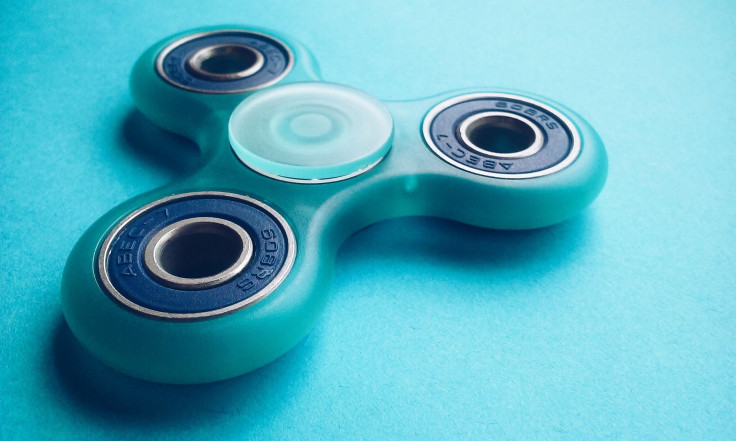New Fidget Spinner Device Can Diagnose UTIs Without Lab Or Electricity — In Under An Hour

KEY POINTS
- Urinary tract infections are among the most common bacterial infections in the U.S.
- Unwanted antibiotics prescription has led to antibiotic resistance
- New fidget spinner-inspired device detects UTIs quickly and efficiently
A new device inspired by the popular fidget spinner toy can diagnose urinary tract infections (UTI) within an hour. What's more, it requires neither a laboratory environment nor electricity, according to a new study.
The device is actually a custom-made fidget spinner that rapidly concentrates pathogens in 1-ml samples of undiluted urine by over 100-fold for the detection of bacterial load and pathogen identification.
The device uses the centrifugal force generated by spinning to push the urine sample via a membrane lining its interior. If bacteria are present in the urine, it will be separated from the sample and will stick to the membrane’s surface. A dye is then added that will reveal bacterial cells within 45 minutes.
The study
The researchers used the device for on-site detection of infection with the naked eye within an hour in urine samples collected from 39 patients who were suspected of having urinary tract infection. The findings revealed that the device can also be used to perform an antimicrobial susceptibility test for antimicrobial drugs, such as cefazolin and ciprofloxacin.
“It is easy to operate,” Yoon-Kyoung Cho, a biomedical engineer at South Korea’s Ulsan National Institute of Science and Technology who worked on the device, told New Scientist.
The researchers said that, in many cases, patients who consulted a doctor for urinary tract infection were prescribed antibiotics while they waited for test results, irrespective of whether those antibiotics would help or not. Such unwanted prescriptions could increase the bacteria’s ability to resist and survive antibiotic treatments over time, Cho told New Scientist.
“The fidget spinner could be used in low-resource settings as an inexpensive handheld point-of-care device for the rapid concentration and detection of pathogens in urine samples,” concluded the researchers in their paper published in the Nature.
Once a patient learns how to use the device, s/he doesn’t need to visit the doctor or clinic to get a diagnosis. The research team believes that their device could help improve access to medical care in developing nations as well as underserved areas for those suffering from urinary tract infections.
© Copyright IBTimes 2025. All rights reserved.






















